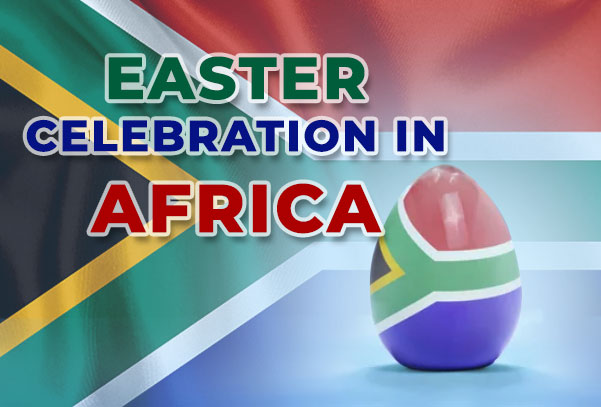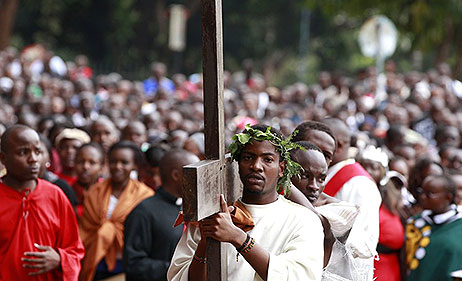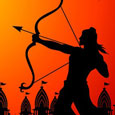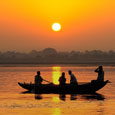
Easter Celebrations in Africa
How is Easter celebrated in Africa? Easter is a time to remember the crucifixion, death, and resurrection of Jesus Christ. Like in other parts of the world, hundreds of millions of Christians in Africa celebrate their redemption during the Easter season.
Easter in Africa

In Africa, Easter is celebrated as a main function of the Christian communities. In the Easter Vigil hundreds of people assemble in the church building.
In most parish churches the Easter Vigil is anticipated, because there are no lights, usually beginning at 3pm and finishing at dark, around 6pm.
The church is decorated by Vitenge and Kanga, clothes made up in the form of butterflies, flowers, banana trees etc.
Christian hymns are accompanied by the beating of drums and Kigelegele, the high-pitched sounds made by women.
After the Mass, traditional dances are held outside of the church. Then people return home to continue their celebrations with local food and drinks.
In some parishes the people remain around the church after Mass and sit in their small Christian communities to continue the celebration of eating and drinking, as ceremonial dances and entertainments continue around them.
In Africa, Easter has a social dimension as well as a spiritual one. At Easter families come together. They share special food with Christians and non-Christians indulging in boiled or roasted rice with meat or chicken.
Meat being very scarce and expensive in Africa, the laws of abstinence (not eating meat) does not hold good.

How is Easter celebrated in Africa?
Africa is huge. Its population is more than 1.341 billion in 2020. Nearly one fourth of the population are Christians, and in whichever country where the majority are Christians, we see Easter as a big occasion.
In these countries, we see that:
It is a National Holiday:
People get a weekend break, as countries declare it a national holiday. For businesses that work on Saturdays, the employees are free to take breaks on Friday and Monday, but they should report to work on Saturday.
Attending Services in church: All religious Christians make it a point to attend the church services, and most of them happen in early mornings and before the mid day.
Party time: This is strictly an activity for those who can afford it. People meet their extended family, relatives and friends and dine together. Barbeque typically features in most get togethers. Some choose to take the long drive and drive outside the city. Since it is a long weekend, travel becomes a natural choice. Some organize family meets at their own place, where social meet up, catching up on old times, lectures and family fun continues.
The following are the most common meal items at this time:
- Chapatis (Flat bread, or flour doe flattened out and roasted over a flat pan and directly over the flame)
- Nyama Choma (chivon, or beef Barbecue)
- Pilau (Spice cooked and flavoured rice, often with seasoned, separately cooked meat)
Though the basic celebration of celebrating Easter in Africa is quite similar to Easter celebration in America or Europe, there are some key differences:
The bunny is conspicuously absent in entire African Easter celebrations.
No egg treasure hunts. Egg hunts, which is one of the most common activities of Easter celebrations is the west, are not practiced at all in Africa.
No shopping spree. Though family members exchange little gifts on the occasion, it is not marked by any heavy shopping activity, new clothes etc.
Exchanging gifts is quite popular in the African tradition, and it can be seen more in the urban areas. In some cultures, not accepting a gift is taken to be an insult.
Being dressed up in the right attire is a very important activity for the Africans on Easter. Most wear black on Good Friday, to mourn the crucification of Jesus Christ, while white is worn on Easter Sunday, to commemorate the resurrection. Some wear traditional clothing. Churches are also decorated with traditional clothes, and with images of crucifixion and resurrection.
Saturday is not a holiday. In the entire west, Easter break is from Friday till Monday included. In Africa, while Friday and Monday are off, Saturday is a full working day, when people get back to work.
No carnivals or parades. Though there are some small processions, where the priest who carries the Cross is followed by a group of people, there are no celebratory carnivals or parades for the occasion. In some places, however, traditional dances are performed wearing traditional dresses, in front of churches.
Common Activity:
Easter month is reasonably warm, and people love to flock to the beaches, Christian or not. The extended weekend provides the added incentive. It has now become a common practice for friends and families to spend their Easter on a beach.
Mkhukhu, The Traditional Dance in South Africa
In the KwaZulu-Natal and Limpopo regions of South Africa, Easter celebrations are marked by a traditional African dance. It existed long before the advent of Christianity in South Africa, and has continued over the ages.
 Ram Navami
Ram Navami Passover
Passover Good Morning
Good Morning